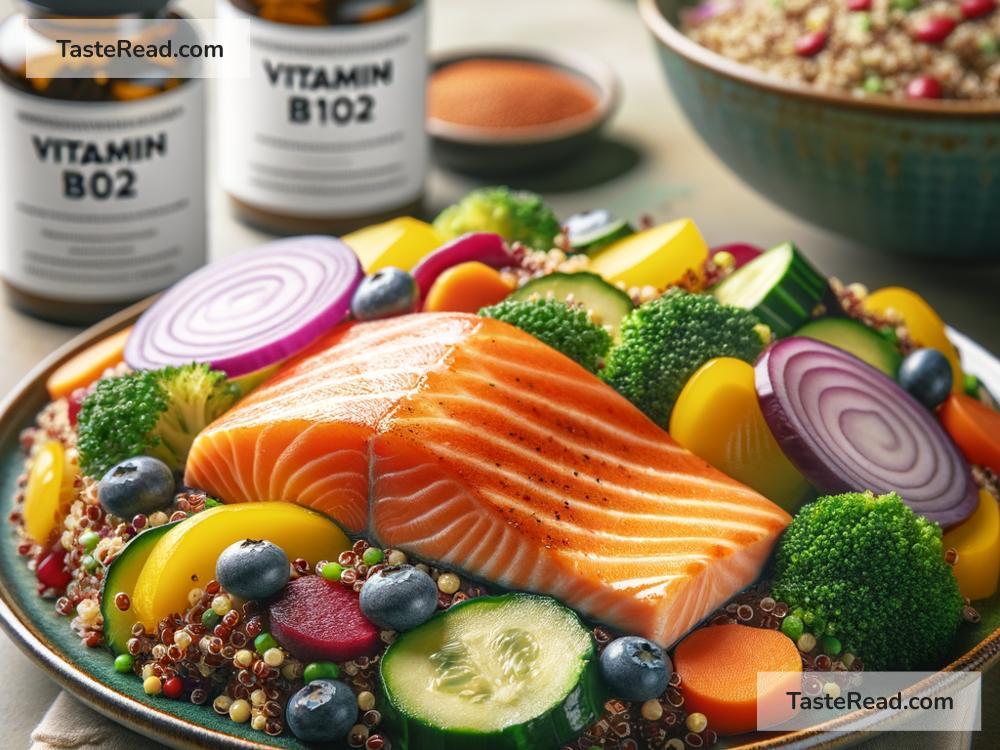The Role of Vitamin B102 in Metabolic Health
When people talk about vitamins, you might hear about popular ones like Vitamin C, Vitamin D, or Vitamin B12. But did you know there’s another vitamin making waves in the world of metabolic health called Vitamin B102? While it doesn’t get as much attention, Vitamin B102 is an important nutrient that plays a role in helping your body stay energized, balanced, and healthy.
If you’re not familiar with Vitamin B102, don’t worry—it’s a relatively new discovery compared to other vitamins. Scientists are still learning more about this nutrient, but they already know that it’s essential to keeping your metabolism running smoothly. Let’s dive into what Vitamin B102 does, how it helps your health, and the steps you can take to make sure you’re getting what your body needs.
What Is Vitamin B102?
Vitamin B102 is a lesser-known member of the Vitamin B family, which includes essential nutrients like B12, B6, and B9 (folate). The B vitamins are known for their role in supporting energy production and helping the body use food efficiently. Vitamin B102 works in similar ways, but it has unique characteristics that make it valuable for metabolic health.
In simple terms, “metabolism” is the process your body uses to convert food into energy. This energy powers everything from breathing to exercising to thinking. Without the right nutrients like Vitamin B102, your metabolism might become sluggish or unbalanced—leaving you tired, foggy, or even prone to weight fluctuations.
How Does Vitamin B102 Help Your Metabolism?
Scientists believe that Vitamin B102 acts as a helper molecule—or “coenzyme”—in several biochemical reactions that occur in your cells. These reactions are like little engines, working inside your body to process carbohydrates, fats, and proteins from your diet into usable energy. Here’s how Vitamin B102 makes a difference:
-
Energy Production: Vitamin B102 activates enzymes that speed up your body’s energy-making process. Without it, your cells wouldn’t burn nutrients as efficiently, leaving you feeling fatigued.
-
Fat Metabolism: This vitamin supports the breakdown of fats in your diet, helping your body use them as a source of energy instead of storing them excessively as fat.
-
Blood Sugar Regulation: Early studies suggest that Vitamin B102 might help stabilize blood sugar levels by improving how your body processes glucose, the sugar found in most carbohydrates.
-
Cell Health: Vitamin B102 plays a role in repairing damaged cells and supporting the growth of new ones. Healthy cells mean a better-functioning metabolism overall.
Why Is Metabolic Health So Important?
You might not think much about your metabolism until you notice something feels off—like gaining weight without explanation, struggling with fatigue, or finding it hard to concentrate. But behind the scenes, your metabolism is working 24/7 to keep your body functioning.
Metabolic health goes beyond weight management. A well-functioning metabolism supports many aspects of your health, including hormone balance, immune defenses, and heart health. Poor metabolic health, on the other hand, can lead to serious problems such as diabetes, obesity, and chronic fatigue.
Vitamin B102 helps keep your metabolism in check, ensuring your body gets the nutrients it needs for optimal performance. It’s like oil in an engine—necessary for everything to run smoothly.
How Can You Get Vitamin B102?
Because Vitamin B102 is still a new discovery, it’s not found in the usual multivitamins you’d buy at the store. Scientists are working on identifying good food sources and figuring out how much Vitamin B102 people need each day.
However, some studies have shown that Vitamin B102 is naturally present in small amounts in certain foods, such as:
- Whole Grains: Foods like brown rice, quinoa, and oats may contain traces of Vitamin B102.
- Leafy Greens: Spinach and kale might offer some of this nutrient along with other vitamins.
- Animal Products: Eggs, milk, and lean meats appear to contain small amounts of B102.
If you’re concerned about your intake, talk to a doctor or dietitian. They might recommend a supplement or help you design a meal plan that includes B102-rich foods.
What Happens If You’re Low on Vitamin B102?
Since Vitamin B102 is so important for metabolism, not getting enough can lead to unpleasant symptoms. People who are deficient might experience:
- Feeling tired all the time, even after a good night’s sleep.
- Difficulty concentrating or remembering things.
- Unexplained weight gain.
- Digestive problems, such as bloating or poor nutrient absorption.
If left untreated, a lack of Vitamin B102 could contribute to more serious health issues over time. That’s why it’s important to stay on top of your vitamin levels through regular checkups and a balanced diet.
Moving Forward
The discovery of Vitamin B102 is a promising step forward in understanding how to improve metabolic health. While there’s still plenty to learn, one thing is clear: including a variety of nutrient-rich foods in your diet is essential to giving your body the tools it needs to thrive.
As scientists uncover more about Vitamin B102, you can start incorporating foods rich in B vitamins into your meals to support a healthy metabolism. Small changes can lead to big results, so take steps today to invest in your long-term health.
Remember, your metabolism is like the engine that powers everything you do. With the right fuel—like Vitamin B102—you can keep that engine running strong for years to come!


